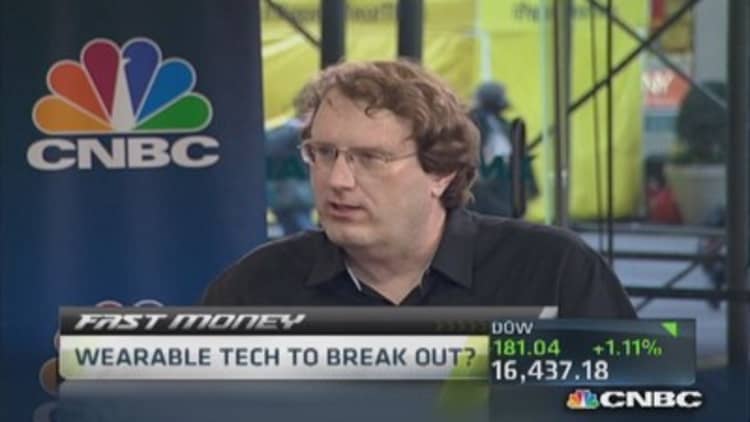Intel may have missed the move to mobile, but the company is going to great lengths to make sure it doesn't miss the shift to wearables and the so-called "Internet of Things."
"We are catching up. I should just start out with admitting that," CEO Brian Krzanich said in an interview with CNBC.
Intel was behind in implementing the latest communication technology in its mobile platforms and has since paid a steep price, he said.
The company's first quarter earnings show that mobile and communications revenue dropped 52 percent year over year to $156 million. But the company has made big investments to change directions and is betting its Internet of Things segment, also known as its embedded systems business, will be a big growth driver.
Read More Intel earnings: 38 cents per share on sales of $12.8 billion
"We were behind. We were late to LTE," Krzanich said, referringto long-term evolution, the most up-to-date standard in wireless communication speed. "But we now believe we have the full suite and we believe we are on the edge or leading edge in almost every category. We think it's critical because I don't think a single product that we make will not have various levels of communication in them."

Intel made a big pitch for its push into wearables in January at the Consumer Electronics Show, where it showed off a headset and smartwatch. The company also announced it had partnered with retailers, including Barney's and Opening Ceremony, to come up with a new wearable device.
Read More Could Intel miss out on the wearables boom?
"The end of this year and the beginning of next year you will see some really good products," Krzanich said in the interview Friday at CNBC headquarters.
He said that one of the Intel's fashion partners is planning to launch a new device "very soon," but he would not comment on who that partner is.
He said wearables, though, are just one part of the move to the "Internet of Things," the term for connecting all kinds of physical devices to the Internet.
Connecting everything from appliances and cars to medical devices opens up big opportunities for Intel, Krzanich said.
"It's one of the most exciting areas of growth," he said.
Intel's Internet of Things group, which includes wearables, generated $482 million in the most recent quarter, a 32 percent increase year-over-year but a 10 percent decline from the previous quarter.
Still, Krzanich said that despite expected growth in its embedded business, the company's bread and butter remains its PC group, and more declines in that segment could weigh heavily on the company.
"I have a $35, $40 billion business that I have to maintain. At the end of the day, that's both a great asset and a risk or something that you have to manage," he said. "So we are absolutely investing in that space."
The company previously said in January that it would cut be cutting 5,000 jobs due to the declining PC business.


